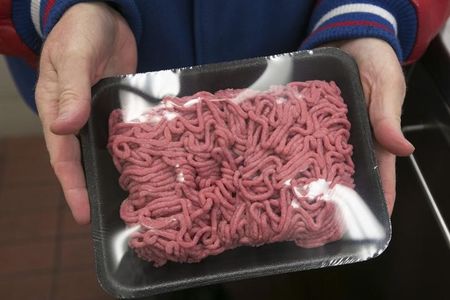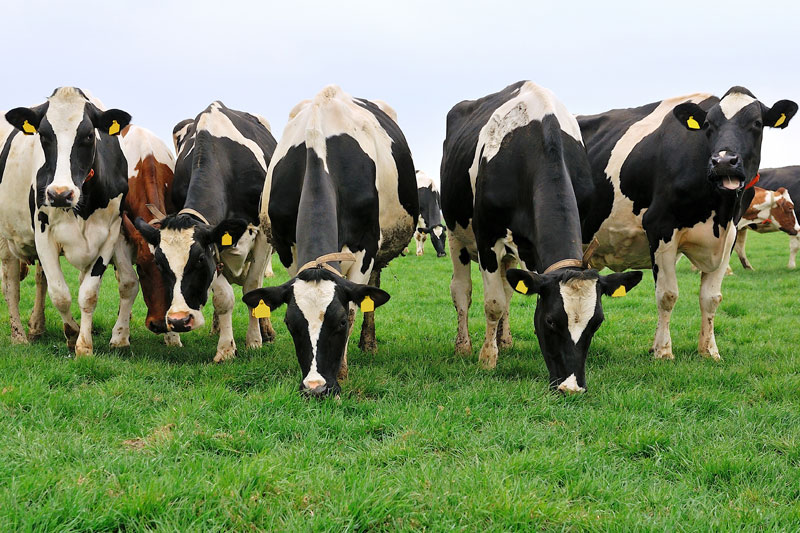By Tom Miles and Krista Hughes GENEVA/WASHINGTON (Reuters) - The United States faces potential trade sanctions from Canada and Mexico after the World Trade Organization ruled on Monday it had failed to bring its meat labeling regulations fully in line with international fair trading rules.
The WTO said the United States had not done enough to change its labeling rules, requiring retailers such as grocery stores to list the country of origin on meat, after it lost an earlier WTO challenge.
Canada and Mexico called on the United States to repeal the rules and said they were prepared to retaliate if needed against U.S. exports. Previous estimates have put the cost of tariffs as high as $2 billion.
"Canada and Mexico will remain vigilant to ensure the harm generated by the protectionist ... policy is brought to an end and that international trade commitments are respected," the two countries' trade and agriculture ministers said in a statement.
U.S. pork producers urged Congress and the administration to fix the rules and avoid "financially devastating" retaliation, while the U.S. Chamber of Commerce, National Association of Manufacturers, farmer cooperatives and corn refiners said the offending sections should be immediately repealed. Beef producers said the whole policy should be scrapped.
"The announcement today by the WTO dispute panel on the U.S. Country of Origin Labeling rule brings us all one step closer to facing retaliatory tariffs from two of our largest trading partners," said National Cattlemen's Beef Association President Bob McCan.
The WTO ruled in June 2012 that the U.S. meat labeling program, known as country-of-origin labeling (COOL), unfairly discriminated against Canada and Mexico because it gave less favorable treatment to beef and pork imported from those countries than to U.S. meat, which is illegal according to WTO rules.
The United States said it had met a deadline to change its rules, but Canada and Mexico said it had not done enough, a claim that was at least partially upheld by Monday's ruling.
Under the regulations, U.S. meat carries labels such as "Born, Raised and Slaughtered in the United States", compared to labels such as, "Born in Mexico, Raised and Slaughtered in the United States."
The U.S. rules have resulted in fewer Canadian pig and cattle exports since 2009, according to the Canadian government. Canada already has published a hit-list of potential U.S. targets including wine, chocolate, ketchup and cereal.
Any of the three countries can appeal within 20 days - an option the U.S. Trade Representative's office said it was considering.
Unless the revised U.S. labeling rules are given the all-clear by the WTO's Appellate Body, Mexico and Canada can ask the trade body to let them impose a certain amount of trade sanctions on the United States, which in turn can challenge the amount.
A U.S. official said the best way to resolve the issue would be through a negotiated settlement, which would likely require Congress to change the labeling rules.
But Canada dismissed the idea of a settlement.
"Basically the (WTO) Appellate Body has told them three times now to get rid of mandatory country of origin labeling," Canadian Agriculture Minister Gerry Ritz said. "I don't see any negotiation, other than how long it's going to take to make that happen."
House Agriculture Committee Chairman Frank Lucas, a Republican, has called for repeal of the disputed rules and said he would support a compromise. His Democratic Senate counterpart, Debbie Stabenow, called for a balance between consumer interests and international trade.

Consumer rights group Public Citizen said any weakening of labeling rules would mean consumers would lose access to critical information about where their meat comes from.
(Additional reporting by Rod Nickel in Winnipeg, Manitoba; Editing by Stephanie Nebehay, Gunna Dickson and Paul Simao)
